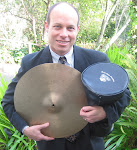Historians’ views of MacArthur tend to be projections of their politics. Liberal writers view MacArthur as a man who “needed to be worshiped” (Halberstam), a narcissist who, despite his inability for honest self-reflection possessed uncanny military instincts and strategic vision. Conservative writers admire the soldier less grudgingly, and instead, paint MacArthur as a genius and hero, a life that should be emulated by any American. I have compiled a short list of biographies and books on MacArthur’s time period. I picked these books and not others because I was familiar with them. Links follow the summaries.
David Halberstam in The Fifties, (pp. 77-86) entertains the reader by revealing Truman’s understanding of MacArthur as a narcissist and Prima Donna, a supremely confident genius of Inchon who arrogantly underestimated the threat of the Chinese Communists in North Korea. Halberstam painstakingly lays out how the Chinese telegraphed their intent to enter the war if provoked and how MacArthur ignored all the warnings.
The encyclopedic 700-page American Caesar by William Manchester presents a complex individual who personalized conflict, exemplified in his famous, “I shall return.” During WWII he felt that his office required luxuries, and the Japanese were coming after him personally. Like royalty MacArthur often spoke of himself in the third person. This attitude toward himself and his role made him a superb warrior.
A People’s History of the United States by Howard Zinn mentions only MacArthur’s violent put down of the Bonus Army during the Great Depression (P. 284). Zinn’s social history ignores the rest of the general’s career. This is a shame. How would MacArthur’s great popularity contrast with Zinn’s assessment of the American mood of the early 1950s?
Steve Neal’s Harry and Ike (pp. 204-215) concentrates on MacArthur’s public dissent from White House policies after the Chinese invasion of Korea. The book notes Eisenhower’s opinion of MacArthur from their work together and the political fallout after Truman dismissed him. Both Eisenhower and Truman despised MacArthur.
My favorite book of the bunch reviewed here is John Gunther’s The Riddle of MacArthur, published in 1951. This book concentrates on MacArthur’s masterfully conducted rehabilitation of Japan. The “supreme commander” introduced Japan to democracy and civil liberties and got them to like it. The book goes in great detail about MacArthur’s personal style and how that fit with the needs and wishes of the Japanese people. The Japanese had just suffered a great psychological blow--their culture was not infallible. The book lacks the historical (or revisionist) perspective of the author's 1970s edition or more modern works.
Finally, MacArthur’s autobiography, Reminiscences, is overblown, melodramatic, and exhaustive. His collection of pictures alone makes it worth perusing—the high drama of him with General Wainwright just before leaving Corregidor, wading ashore at Luzon, majestically leaving the plane to assume command of the Japanese occupation, visiting Inchon, addressing a West Point honor corps, and more. A Hollywood movie producer couldn’t have produced more intensity. The book is without balance of course, but it also contains MacArthur’s famous speeches.
Here are the books. Buy them or check them out of your library.
Here are the books. Buy them or check them out of your library.





The answer, Mike, is "both." Very few great generals were not also narcissistic or, at least, "highly self-confident." One exception that comes to mind is Omar Bradley.
ReplyDeleteI won't comment on MacArthur's politics or why his personality kept him from being successful in that world, but you have to give the man credit (usually) for battlefield success.
One thing that usually isn't emphasized is his concern, like Bradley, for keeping losses low. One might argue that that was due to his lack of them in the Pacific theater and Korea, which required him not to be profligate, but I suspect that the soldiers who are alive today because of the strategy wouldn't want to split hairs. His island-hopping, "let the Japanese behind me wither on the vine" strategy was brilliant.
Oh, and let's give him a good deal of credit for his administration of the Japanese occupation.
I've only read "American Caesar," but if you want a thoughtful and thorough book about the man, I highly recommend it.
Agreed. He loved his men.
ReplyDeleteHis administration of Japan was admirable. That's why I especially liked Gunther's book. If you only want to read one though, American Caesar is a good choice.